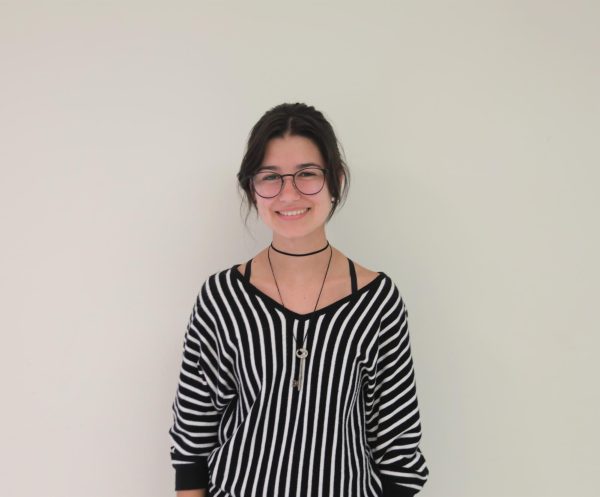White Cane Day is annually celebrated on Oct. 15 as a means for identifying and empowering people who are blind and visually impaired. Some of LT’s visually impaired students spread awareness this year by creating a bulletin board in the hallway, having announcements over the loudspeakers, and partnering with LT’s Disabled-Abled Connections club to hand out stickers.
“I want to defeat the ignorance that I and so many others have been shown, and educate people through White Cane Day,” Genesis Cruz ‘24 said. “Blindness is a spectrum. When a lot of people see me, they assume that I may function in a specific way because they have a preconceived idea of who I am. That’s simply not true, I am a lot more than just my cane.”
Officially established in 1964 by President Lyndon B. Johnson, White Cane Day is an effort to raise awareness of people who carry a white cane. White canes are devices that allow people who are blind or have low vision to confidently explore their surroundings safely and independently. They also help motorists identify and yield to people using the white cane.
“Before coming to LT, I never knew about canes and spent most of my life struggling to get around,” Cruz said. “I got my first cane in October of my sophomore year, and at first it was kind of difficult to get around, especially outside. But it [got] so much better, and I found myself standing taller [with] a lot more confidence. It completely changed my life.”
Within both NC and SC, there are five total cane users. LT provides those students with resources including Cooperative Association for Special Education (CASE) itinerant teachers – teachers who bounce from district to district specializing in specific areas of need. Lisa Polinski, the vision itinerant teacher, focuses on working with blind students and their learning in the classroom.
“We work on braille, self-advocacy, use of low vision tools and technology, and adapting the curriculum,” Polinski said. “I strive to make sure my students are as independent as possible and that they have the materials they need to be successful.”
Along with the visual itinerant teachers, LT provides orientation and mobility specialists, she said. These teachers work with visually impaired students on traveling safely and independently using public transportation.
However, during school hours things can still prove to be difficult even with resources, Patrick St. Arnaud ‘24 said. Some things like visuals and images cannot be made more accessible, and it may take longer to complete assignments.
“If I’m taking a test, and leaving before the bell is not an option, I’ll walk with the rest of the students,” St. Arnaud said. “[The students] are pretty good in the hallway, but when it gets more crowded, it gets more challenging because it’s harder to move around people.”
There are multiple stigmas that affect blind and visually impaired people, he said. With White Cane Day, they hope to show people how to respectfully interact with users of white canes and other visually impaired people within everyday life.
“It’s okay to use regular words like ‘watch’, ‘look’ or ‘see,’” St. Arnaud said. “You don’t have to say ‘Did you listen to TV?’ or things like that. It’s perfectly normal and acceptable.”
Other things to keep in mind is to state your name when you see a visually impaired person so they know who’s speaking to them, do not move personal items or objects without informing the individual, and always ask before assuming they need assistance, St. Arnaud said. They will inform you of the appropriate ways to help them.
“Inclusion strives to make all people feel valued and respected,” Pollinski said. “We can all learn from each other, regardless of our differences and challenges.”





















![Movie poster for '[Rec]" (2007).](https://www.lionnewspaper.com/wp-content/uploads/2023/04/rec-640x900.jpg)




